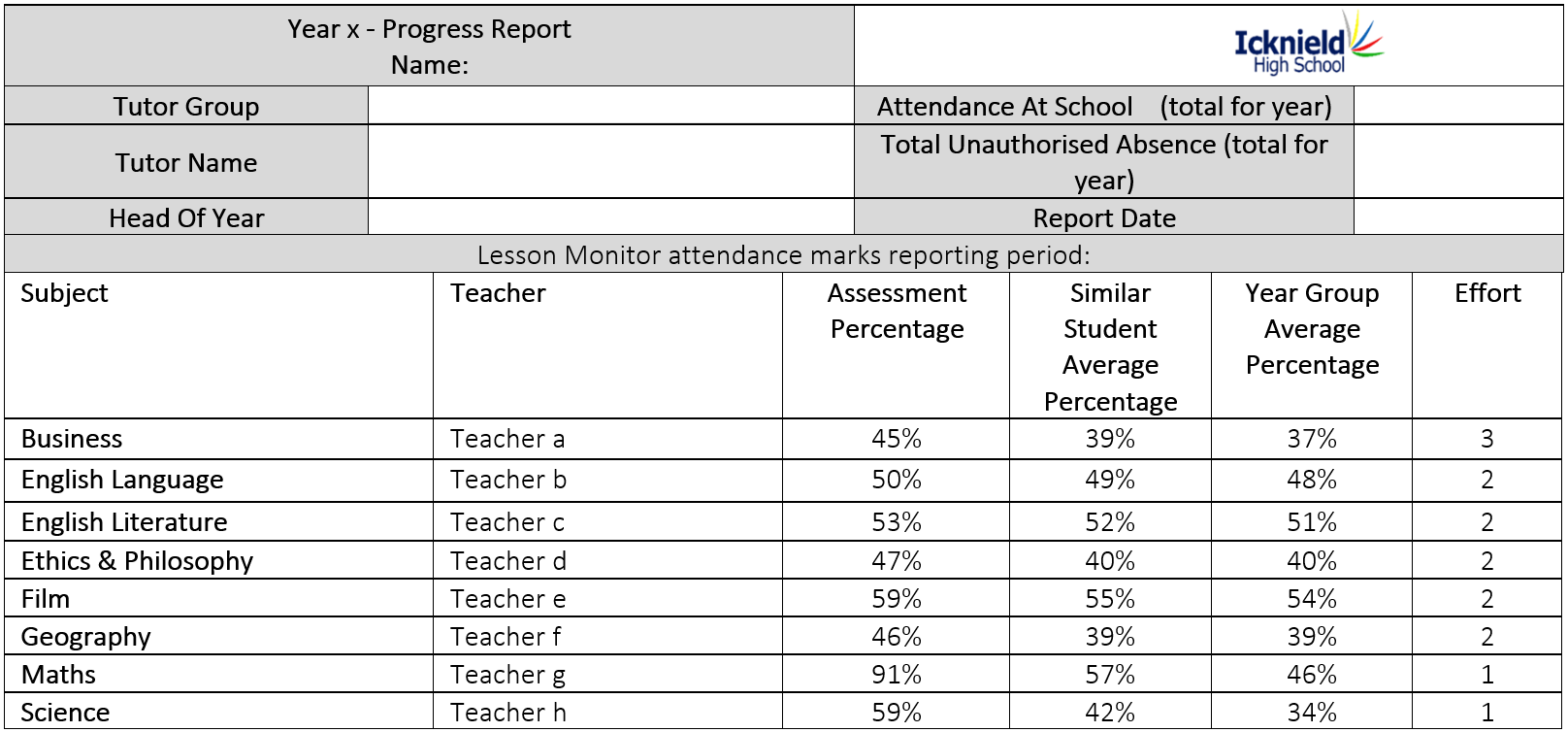Assessment and Reporting Explained
Within lessons, teachers regularly assess students’ progress through a range of informal strategies such as asking questions, looking at students answers, or providing feedback to the whole class.
In addition, there are three designated assessment weeks spread across the year, when students complete individual assessments in all of their subjects. These assessments enable staff and students to identify how well they have understood the curriculum to date. This enables teachers to plan future teaching and learning, and also presents an opportunity for students to address areas of weakness and further develop their subject knowledge.
We use a cumulative assessment model, where students are assessed on the core knowledge and skills taught since year 7. This provides students with the opportunity to revisit and revise key ideas from their prior learning, ensuring they are retaining the essential building blocks of our curriculum.
Ahead of each assessment, students and parents are provided with a list of the key knowledge which will be required. These Topic Lists enable students to revisit the key ideas, supporting them with memory in the long term. We encourage all students to prepare well for their assessments as these results help us identify additional support, appropriate GCSE pathways and tiers of entry.
Following on from assessments students will have the opportunity to reflect on their answers, correcting misconceptions, and identifying strengths and areas for development.
After each assessment point, the assessment results are shared with parents in the form of a report. This facilitates discussion of strengths and areas for development.
When are the assessments?

What will the report look like?

Key for the report headings:
- Assessment percentage will be the mark that your child achieved on their latest assessment.
- Similar student percentage will be the average mark achieved by students with a similar Key Stage 2 starting point on entry to Icknield High School.
- Year group average will be the average mark achieved by students in that year group.
- Effort grade will be the subject teacher’s assessment of your child’s effort (1= outstanding, 2= good, 3= requires improvement, 4= inadequate).
During the assessment point at the end of year 10, and also during the year 11 assessment point students will complete formal trial examinations. Grades will also be included on reports for these assessment points.
In addition, all students will also receive a behaviour report (see below) that contains information on homework, mobile phone offence, lateness to lesson, lack of equipment and behaviour in lesson.
| Subject | Total Number of Excellent marks | Total Number of Poor Attitude to Learning marks | Total Number of unsatisfactory or missing homework | Total Lack of Equipment in lessons | Total Number of Late to lessons | Total Mobile Phone Offence |
| Tracking Period | Autumn | Autumn | Autumn | Autumn | Autumn | Autumn |
| Art – Film | 15 | 6 | ||||
| Business | 3 | 1 | ||||
| English Language | 4 | 1 | ||||
| Ethics & Philosophy | 3 | 1 | ||||
| Geography | 43 | 1 | 1 | |||
| Maths | 1 | |||||
| Sports Studies | 35 | 1 | 3 | |||
| P.E. | 20 | 1 | ||||
| Science | 39 | |||||
| Totals | 162 | 1 | 3 | 1 | 12 |
How should parents use the report?
- Identify your child’s strengths and areas of development in all subject areas.
- Support your child in addressing any areas of concern.
- Support your child in the preparation of future assessments, using the Topic Lists which indicate revision topics.
- Be fully aware of what your child is studying by looking through the curriculum maps for each subject area on our website.
- Support your child in making sure all homework is completed to a good standard and is returned to teachers by the given deadline on Show My Homework.
- Address any behavioural concerns with your child, supporting them in resolving any barriers to learning.
- Please contact the subject teachers to discuss any concerns in more detail.

